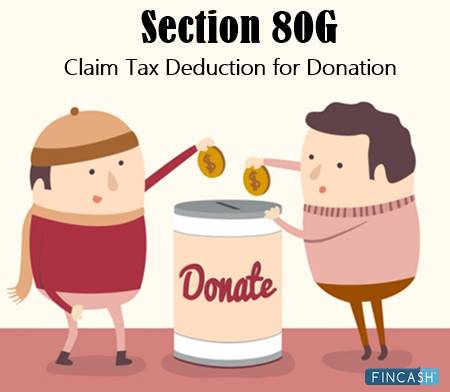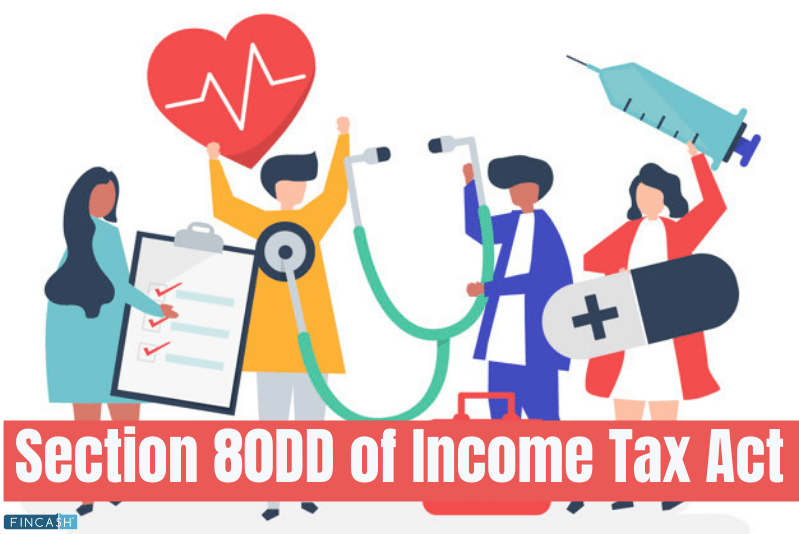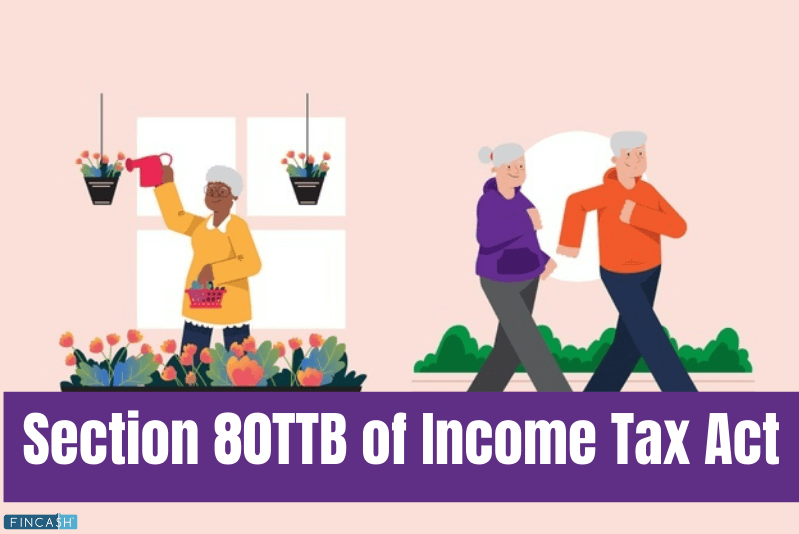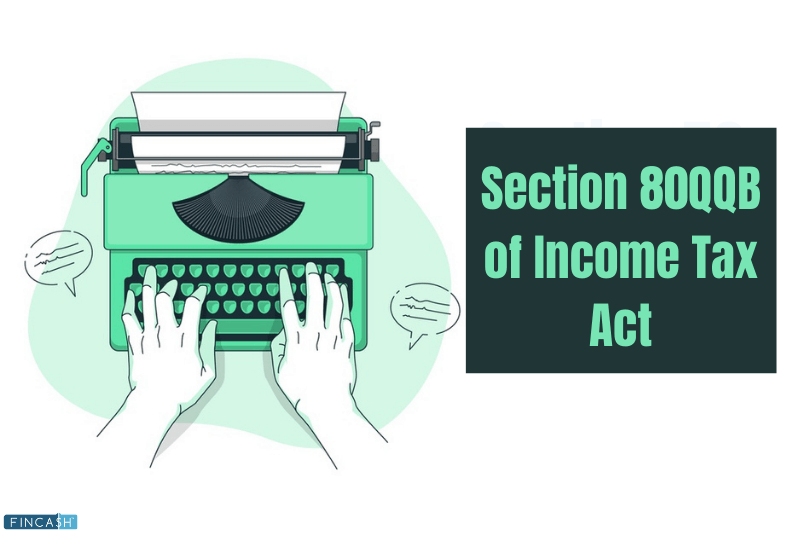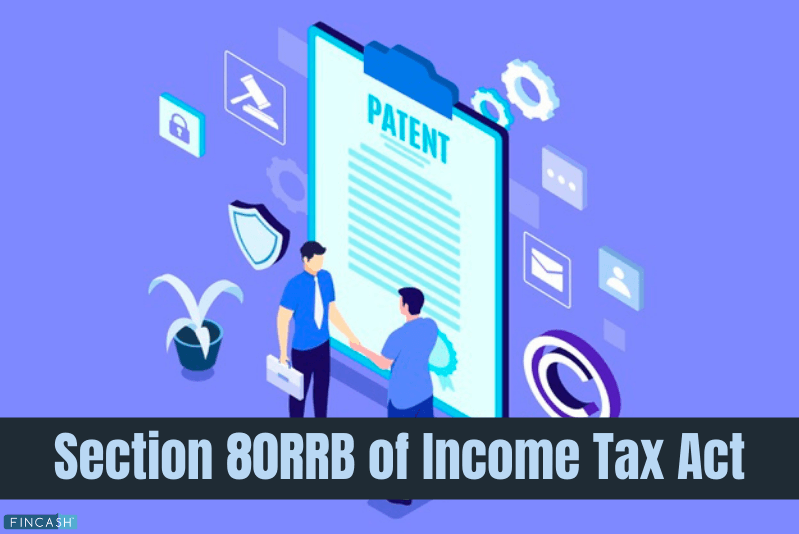
Table of Contents
- Deduction Available under Section 80D
- 80D Deduction Limit
- Exclusions in Section 80D of Income Tax Act
- Options for Tax Saving Other than 80D
- a. Section 80C - Deduction on Long-Term Investments
- b. Section 80CCC - Deduction on Premium Payment of Annuity Plan of LIC or other Insurers
- c. Section 80CCD - Deduction on Contribution to Pension Account
- d. Section 80CCD(1) – Deduction on Employee’s Contribution
- e. Section 80CCD(1B) – Deduction on NPS Contributions
- f. Section 80CCD(2) – Deduction on Employer’s Contribution
- FAQs
- 1. How much deduction can you claim U/S 80D?
- 2. What is the limit for senior citizens?
- 3. Are there any deductions for preventive health check-ups?
- 4. Can I claim tax benefit on cash payments?
- 5. Where can I find a list of special illnesses?
- 6. What is the deduction available for the treatment of disability?
- 7. Is there any deduction available under Section 17?
- 8. What is excluded in the section 80D Income Tax Act?
- Conclusion
Section 80D Deduction for FY 25 - 26
Section 80D of the income tax Act, 1961 provides tax benefits on the health insurance policies. You can claim a tax Deduction for the health insurance premium paid for self, parents, children, and spouse.
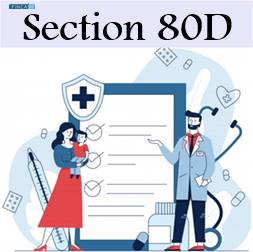
Moreover, 80D section also allows Hindu Undivided Families (HUFs) to claim a deduction.
Deduction Available under Section 80D
Know tax deductions available under Sec 80D of the Income Tax Act as of FY 2020-21 and 2021-22.
| Scenario | Premium Paid - Self, Family, Children (INR) | Premium Paid - Parents (INR) | Deduction under 80D (INR) |
|---|---|---|---|
| Individual and Parents below 60 years | 25,000 | 25,000 | 50,000 |
| Individual and Family below 60 years but Parents above 60 years | 25,000 | 50,000 | 75,000 |
| Both Individual, Family and Parents above 60 years | 50,000 | 50,000 | 1,00,000 |
| Members of HUF | 25,000 | 25,000 | 25,000 |
| Non-Resident Individual | 25,000 | 25,000 | 25,000 |
80D Deduction Limit
You can claim deductions on health insurance premiums paid for self/family and parents, apart from deductions on expenses related to health check-ups.
The overall 80D deduction limits are as follows:
| Covered Individuals | Exemption Limit (INR) | Health Checkup Included (INR) | Total Deduction (INR) |
|---|---|---|---|
| Self and Family | 25,000 | 5,000 | 25,000 |
| Self and Family + Parents | (25,000 + 25,000) = 50,000 | 5,000 | 55,000 |
| Self and Family + Senior Citizen Parents | (25,000 + 50,000) = 75,000 | 5,000 | 80,000 |
| Self (Senior Citizen) and Family + Senior Citizen Parents | (50,000 + 50,000) = 1,00,000 | 5,000 | 1.05 lakh |
Talk to our investment specialist
80D Deduction Limit on Premium Paid for Parents
The medical insurance premiums paid towards parents or guardians are additionally liable for deductions upto INR 25,000 p.a. under Section 80D. But, if anyone or both of your parents are senior citizens (60 year & above), you can claim a tax benefit of up to INR 50,000 per year.
Preventive Health Checkup Deduction
An additional deduction of INR 5,000 is permitted on health checkups either by the individual himself or family members. With this deduction, one can save tax on the health checkups as well. The payment for preventive health check-ups can be made in cash.
80D Deductions on Medical Insurance for Very Senior Citizens
The Government of India has allowed another Section 80D deduction as a benefit for senior citizens. Under this norm, very senior citizens (80 years of age or above) who do not have any insurance policy can claim tax exemptions upto INR 50,000 p.a. towards preventive health checkups and treatments. However, this 80D deduction does not apply to their own expenses.
Exclusions in Section 80D of Income Tax Act
Apart from the benefits, there are various exclusions in the Section 80D as well. These include-
1. Payment Mode
To avail tax benefits under Section 80D of Income Tax, only the taxpayer should make premium payments and there should be no third party involved. Also, if the premiums for medical insurance are paid in cash, the taxpayers are not liable for tax benefits. However, the payment for preventive health checkup is made in cash can avail tax benefits.
2. Service Tax/GST
There are no tax benefits applicable on the service tax and cess charges levied on the premiums paid towards the medical insurance policy. As per norms, 14% service tax is chargeable on the health insurance and mediclaim premium payments.
3. No Tax Benefits on Group Health Insurance
Deductions under Section 80D are not liable on the group health insurance policies. However, if extra premium payment is made by the taxpayers, they can claim 80D deductions on that extra amount.
Options for Tax Saving Other than 80D
a. Section 80C - Deduction on Long-Term Investments
Under Section 80C of the Income Tax Act, one can claim tax deductions upto INR 1,50,000 on various long-term investment options that include ELSS, PPF, EPF, FD, NPS, NSC, ULIP, SCSS, Sukanya Samriddhi Yojana etc.
b. Section 80CCC - Deduction on Premium Payment of Annuity Plan of LIC or other Insurers
Deduction under Section 80CCC is liable on the premiums paid for any annuity plan of LIC (Life Insurance Corporation of India) or any other Life Insurance Company. The maximum 80CCC deduction limit is upto INR 1,50,000.
c. Section 80CCD - Deduction on Contribution to Pension Account
The deductions under this section are further divided into 3 sections. These include-
d. Section 80CCD(1) – Deduction on Employee’s Contribution
Deductions under Section 80CCD(1) are liable for individuals who make contributions towards their pension account. The maximum deduction limit allowed is 10% of the salary (if an employee) or 10% of the total income (if self-employed) or upto INR 1,50,000, whichever is more. Starting from the financial year 2015-16, the maximum limit of deduction was increased from INR 1,00,000 to INR 1,50,000.
e. Section 80CCD(1B) – Deduction on NPS Contributions
The Government of India introduced a new section, Section 80CCD(1B), that allows additional tax deduction upto INR 50,000 on the contributions made by the taxpayer towards their NPS Account (National Pension Scheme).
f. Section 80CCD(2) – Deduction on Employer’s Contribution
Under this section, the tax deduction is applicable on the employer’s contribution towards the employee’s pension account. The maximum limit of tax exemption under Section 80CCD(2) is upto 10% of the employee’s salary and there is no monetary constraint on this deduction.
FAQs
1. How much deduction can you claim U/S 80D?
A: Senior citizens can claim deductions up to INR 50,000. If you are not a senior citizen, you can claim a deduction up to INR 25,000.
2. What is the limit for senior citizens?
A: If you are a senior citizen or live with senior citizen parents, you can claim a total deduction up to INR 75,000.
3. Are there any deductions for preventive health check-ups?
A: If you have medical insurance, then you can claim deductions under section 80D. You can also claim deductions for expenses incurred for preventive check-ups. Deductions up to INR 5000 is allowed for your parents, spouse, self, or children check-ups.
4. Can I claim tax benefit on cash payments?
A: No, under the terms and conditions of section 80D, insurers cannot claim any tax benefits if the payments are made in cash. This is all the more applicable if the payment has been made for preventive health check-ups of yourself or your family member.
5. Where can I find a list of special illnesses?
A: Under Section 80DDB, the list of special illnesses are mentioned in Rule 11DD of Income Tax.
6. What is the deduction available for the treatment of disability?
A: Under Section 80DD, you can get a tax deduction on medical expenses incurred on the treatment of a dependent with a disability.
You can avail tax benefits of up to INR 75,000 on the treatment of a disabled dependent in case of 40% & more disability and INR 1.25 lakh for major disabilities of 70% & above per financial year.
7. Is there any deduction available under Section 17?
A: If your employer pays money and your salary as part of your medical insurance for you or your family member, this amount is exempted from Income Tax. The exemption is up to INR 15,000 per financial year.
8. What is excluded in the section 80D Income Tax Act?
A: Non-cash payments that are made for treatments are excluded from deductions under section 80D of the IT Act.
Conclusion
When it comes to saving Taxes on health insurance policies, the first thing that people review is Section 80D. Tax saving is important and so is the need of getting a health insurance policy (also known as a medical insurance policy). Will it not be great if you can do both in one go? Therefore, the Government of India has issued Section 80D of Income Tax Act.
All efforts have been made to ensure the information provided here is accurate. However, no guarantees are made regarding correctness of data. Please verify with scheme information document before making any investment.
